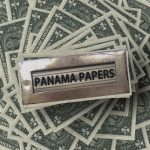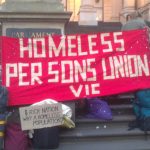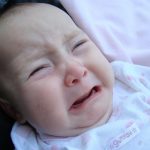The Poor Are Criminalised, While the Crimes of the Rich Are Overlooked

The world’s eight richest people have accumulated more wealth than the poorest four billion, a recently released Oxfam report reveals. And since 2015, the richest 1 percent has owned more than the rest of the world’s 99 percent.
The gap between rich and poor is increasing. Over the period between 1988 and 2011, the income of the world’s poorest 10 percent increased by less than $3 a year, while that of the richest 1 percent rose by 182 times that.
Oxfam describes this ever growing wealth disparity as “beyond grotesque”, and last month, the World Economic Forum remarked that the widening gap was behind the outcomes of the Brexit vote and the US election.
“Left unchecked,” the Oxfam report reads, “growing inequality threatens to pull our societies apart.”
This wealth disparity is contributing to social division and instability. Poverty is rife worldwide, with one in nine people going to bed hungry. Rising levels of insecurity, disillusionment and social unrest are symptomatic of growing inequality.
Wealth disparity in Sydney
At home, there is a growing gap in wealth between the richer northern and eastern suburbs, and the poorer western ones.
Over the decade ending in 2015, Sydney’s ten poorest postcodes got poorer, with any increases in income being swallowed by rising prices, according to Fairfax Media figures. The top ten richest postcodes saw a marked increase in wealth over the same period.
Sydney’s wealthiest postcode, 2027, which includes the suburbs of Point Piper and Darling Point, saw the fastest income growth. And overall, the salaries of the city’s richest people have soared due to a series of tax cuts for the top income bracket.
The city’s poorest postcode is 2144, the suburb of Auburn. Incomes there grew by just 13 percent over the past decade, well behind consumer price index which rose by 31 percent.
Breeding division
Australian researchers have found that big cities generate disproportionately high levels of inequality. As cities like Sydney and Melbourne – along with London and New York – continue grow, the percentage of wealth generated is higher than the percentage of population growth.
The increase in wealth is concentrated in the upper income categories, while the rise for poor and middle-income earners grows at a much slower rate.
Socioeconomic disadvantage leads to crime
There is an enormous amount of research to suggest that socioeconomic disadvantage is a key indicator of, and contributing factor to, criminal conduct. Indeed, many of the high crime areas in Sydney – outside of the CBD – are located in the city’s west and southwest.
A recent Roy Morgan Research report found that the top five suburbs in Sydney where residents thought crime was a growing problem were Bradbury, Lakemba, Fairfield, Guildford and Greenacre – all of which are located in the city’s western and southwestern suburbs.
Similar patterns are found in disadvantaged areas of Melbourne. A 2015 Victorian Ombudsman report into rehabilitation concluded that a quarter of the state’s prisoners come from just 2 percent of the state’s postcodes, and half come from just 6 percent.
The report further found that amongst Victoria’s incarcerated population, only 6 percent of men and 14 percent of women had finished high school. Most inmates were unemployed at the time of their offending. The children of inmates were found to be six times more likely to be imprisoned.
But aren’t the rich complicit?
So how about on the global scale? Are poorer countries suffering higher rates of crime? A list of the most corrupt countries in the world reveals some of the globe’s poorest and most war torn nations. And if you google countries with the highest crime rates, again the result is a list of poorer, developing nations.
But as we continue with this line of argument, there’s something of significance that’s being overlooked: the transgressions of the extremely rich.
Many of the world’s poorest countries have been systematically – and in many cases illegally – pillaged and plundered by the colonial powers that are now the wealthiest nations on earth. And the poorest people within colonised countries are frequently cheated by their own nation’s most powerful and affluent.
Working to increase their wealth
The Oxfam report, released last month, found that three-quarters of the world’s extreme poverty could be wiped out using resources that are already available, “by increasing taxation and cutting down on military and other regressive spending.”
But this is the exact opposite of what the richest people in the world – the billionaires who appear on the Forbes list – are doing when it comes to taxation.
In a 2015 Oxfam report, the charity outlined that many of the ultra-wealthy have significant vested interests in key economic sectors, such as finance and pharmaceuticals. Companies in these sectors spend heavily on lobbying to further enhance their interests.
Most of the lobbying in the US – where 30 percent of those on the rich list come from – is focused on budget and tax issues. These are resources that could be used to benefit the whole population, but instead they’re mainly benefiting the super-rich.
But it’s more than lobbying and exploiting people and legal loopholes that suggests the world’s richest are getting away with crime, which on one definition includes “an act committed in violation of the law” or acts which are “unjust, senseless or disgraceful.”
Getting away with crimes
The release of the ‘Panama Papers’ last year suggests that more than 14,000 banks, law firms, company incorporators and other ‘middlemen’ acted in league with law firm Mossack Fonseca to get away with tax fraud on a monumental scale and to avoid a range of other legal duties.
Many of the world’s wealthiest people are alleged to be involved, including 12 current and former world leaders and 128 politicians and public officials from around the globe.
Those implicated include:
- 29 billionaires featured in Forbes Magazine’s list of the world’s 500 richest people,
- 33 people and companies blacklisted by the US Government because they had done business with Mexican drug lords, terrorist organisations or ‘rogue nations’ including North Korea,
- Close associates of Russian President Vladimir Putin, who allegedly horded $2 billion through shadow companies,
- Icelandic Prime Minister Sigmundur David Gunnlaugsson, who owned an offshore firm that held millions of dollars in Icelandic bank bonds during the country’s financial crisis,
- Offshore companies controlled by the Prime Minister of Pakistan, the King of Saudi Arabia, and Ukrainian President Petro Poroshenko who was revered for his anti-corruption stance, and
- The family of Chinese leader Xi Jinping, the father of British Prime Minister David Cameron and the children of the President of Azerbaijan.
Despite the magnitude of the alleged criminal activity – involving hundreds of powerful and wealthy individuals, and several thousand companies – it seems the news coverage of the alleged criminal conduct has subsided, with many forming the view that most of those implicated will get away with their crimes.
The leak raises questions about how many other firms like Mossack Fonsenca may be out there, enabling the wealthy to get away with serious crimes.
The neoliberal agenda
On a broader level, the old colonial ties between the global north and the global south are still in place and getting worse. During the colonial period, the gap between the rich European nations and the colonised widened from 3:1 to 35:1. But since that period, this gap has skyrocketed to almost 80:1.
The flow of capital from poor to rich nations continues to rapidly increase. And today, this is due to the neoliberal economic policies imposed by the Bretton Woods institutions: the World Bank, the IMF and the World Trade Organisation.
It seems there are many important questions to look at in the present environment, including: what should constitute a crime, who’s deciding what constitutes a crime (and what does not), who’s committing crime, why are they committing crime, who’s getting away with crime, how and why?








